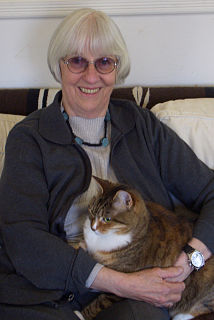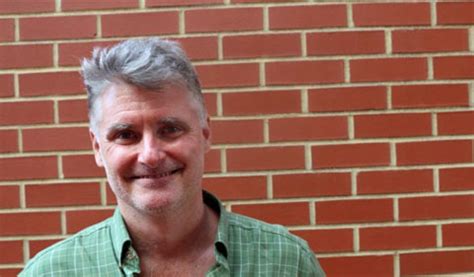A Quote by Zadie Smith
Well-run libraries are filled with people because what a good library offers cannot be easily found elsewhere: an indoor public space in which you do not have to buy anything in order to stay.
Related Quotes
Children have to have access to books, and a lot of children can't go to a store and buy a book. We need not only our public libraries to be funded properly and staffed properly, but our school libraries. Many children can't get to a public library, and the only library they have is a school library.
We like to say the Internet is the ultimate library. But libraries are libraries because people come together and fund them through taxes. Libraries actually exist, all over the country, so why is it such a reach to imagine and to someday build a public institution that has a digital aspect to it? Of course the problem is that libraries and other public services are being defunded and are under attack, so there's a bigger progressive struggle this plays into.
In a library, you can find small miracles and truth, and you might find something that will make you laugh so hard that you will get shushed, in the friendliest way. I have found sanctuary in libraries my whole life, and there is sanctuary there now, from the war, from the storms of our families and our own minds. Libraries are like mountains or meadows or creeks: sacred space. So this afternoon, I'll walk to the library.
When I get nervous, I go to the library and hang around. The libraries are filled with people who are nervous. You can blend in with them there. You're bound to see someone more nervous than you are in a library. Sometimes the librarians themselves are more nervous than you are. I'll probably be a librarian for that reason. Then if I'm nervous on the job, it won't show. I'll just stamp books and look things up for people and run back and forth to the staff room sneaking smokes until I get hold of myself. A library is a great place to hid.
I claim that this bookless library is a dream, a hallucination of on-line addicts; network neophytes, and library-automation insiders...Instead, I suspect computers will deviously chew away at libraries from the inside. They'll eat up book budgets and require librarians that are more comfortable with computers than with children and scholars. Libraries will become adept at supplying the public with fast, low-quality information. The result won't be a library without books--it'll be a library without value.
I think the public library system is one of the most amazing American institutions. Free for everybody. If you ever get the blues about the status of American culture there are still more public libraries than there are McDonald's. During the worst of the Depression not one public library closed their doors.
Despite the campaign rhetoric, the bureaucracies-big business and big government-are here to stay. The centralization effort cannot be checked. but it can be rationally directed towards our species goal: Space Migration, which in turn offers the only way to re-attain individual freedom of space-time and the small-group social structures which obviously best suit our nervous systems. It is another paradox of neuro-genetics that only in space habitats can humanity return to the village life and pastoral style for which we all long.
You cannot really be too concerned with what people think of you. You're on your own adventure of growth and discovery. So it's not always good to be who people think you are, especially if you subscribe to it as well ... which is easily done, because then you don't have to figure out who you are, you just ask somebody else.
At the 1894 ALA conference it was fairly well agreed that the primary goal of the public library must be to teach good citizenship. Libraries recognized that such "Americanization" could be achieved through literacy. Thus, teaching immigrants to read was not just a benefit in and of itself; literacy would also serve the interests of democracy.
Now, many public libraries want to lend e-books, not simply to patrons who come in to download, but to anybody with a reading device, a library card and an Internet connection. In this new reality, the only incentive to buy, rather than borrow, an e-book is the fact that the lent copy vanishes after a couple of weeks.







































